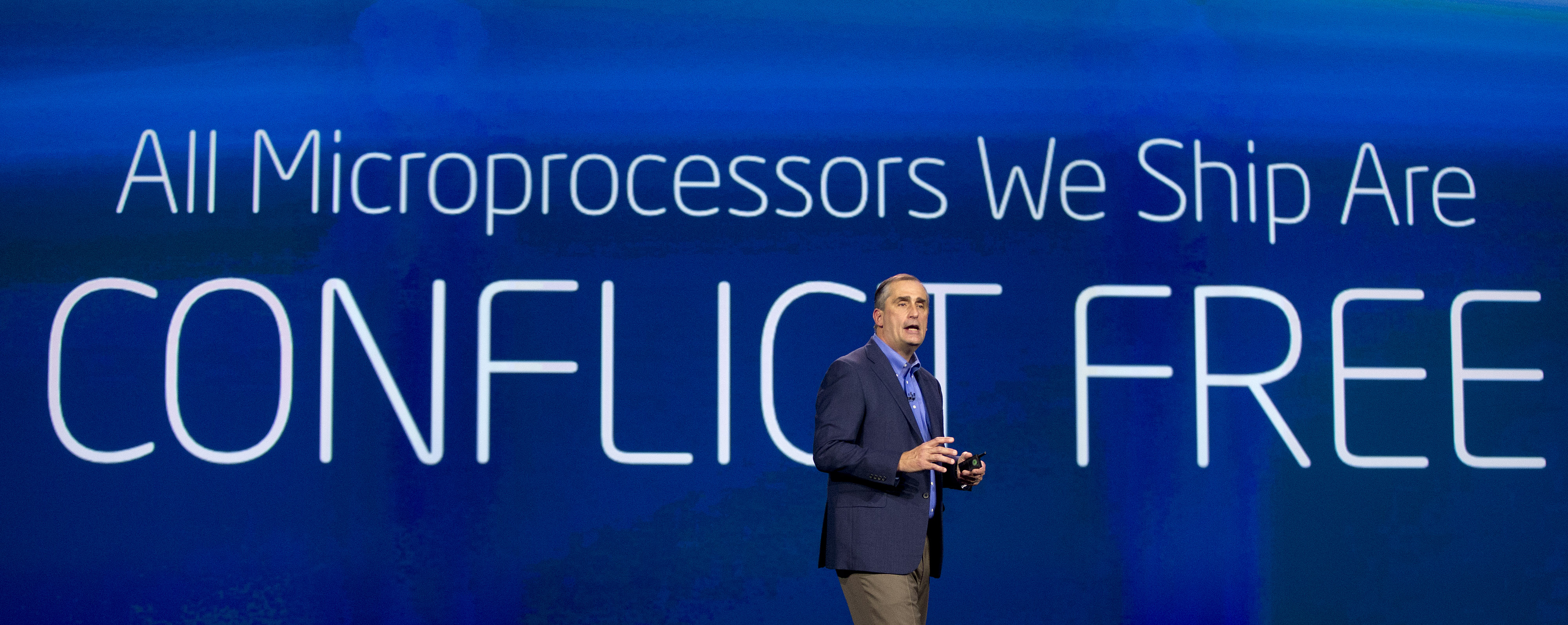
Editor's Note: This op-ed, co-authored by Enough Project Co-Founder John Prendergast and Intel CEO Brian Krzanich originally appeared on USAToday.
Corporations may not have a direct responsibility to end wars in far-flung corners of the Earth. But when parts of their products may come from a war zone, they can, in fact, help support peace by assuming more control over their supply chains. Eastern Democratic Republic of Congo is a case in point.
Five years ago, eastern Congo was among the deadliest conflicts in the world, yet most nations turned a blind eye. The most powerful rebel group was led in part by a warlord nicknamed "The Terminator" whose forces kidnapped kids to become his child soldiers, mass raped women and girls, and massacred civilians. The second largest militia, led by perpetrators of the 1994 Rwandan genocide, routinely used rape as a weapon of war. The number of displaced persons soared to over 2 million while the death toll crept over the staggering five million mark.
It was then that the Enough Project started examining the role of the electronics industry and soon after set forth with a few partners, one of the most passionate ones being Intel, to identify a path forward for trade with the region without contributing to the conflict.
All of the armed groups, as well as Congo's army and neighboring Rwanda, Uganda, and Burundi thrived from a lucrative trade in the minerals used to produce tin, tungsten, tantalum and gold, generating hundreds of millions of dollars a year by controlling mines and trading routes. Minerals from those mines have been labeled "conflict minerals." Meanwhile, corporations in the U.S., Asia, and Europe purchased many of those conflict minerals through their supply chains and had no system to weed them out.
Today, there are significant seeds of hope in the war-torn region. Armed groups are on the wane, and Congo now receives major international attention, thanks in part to a consumer movement against conflict minerals in electronics.
Read the full op-ed on USAToday.
Photo: Intel CEO Brian Krzanich

